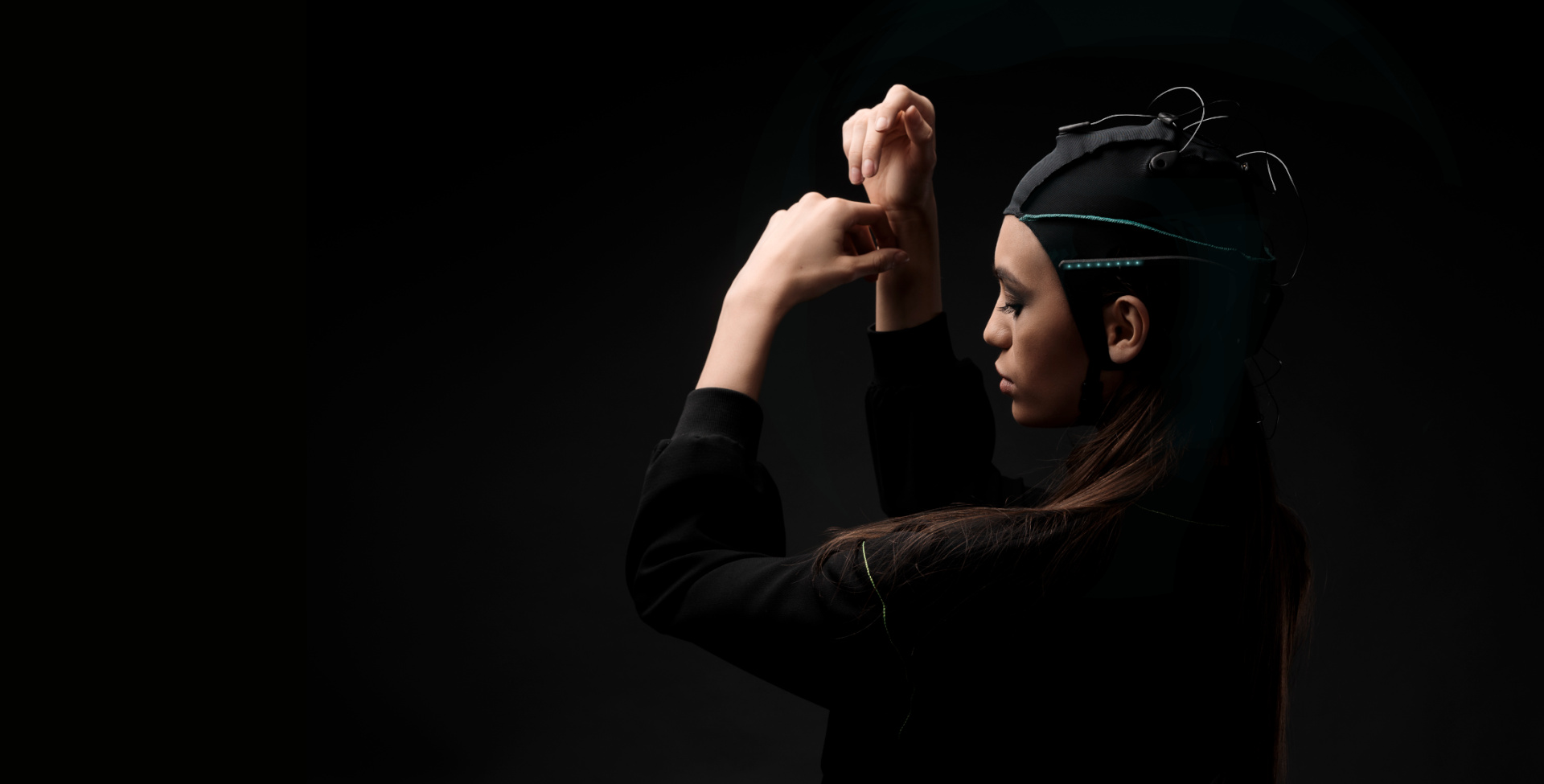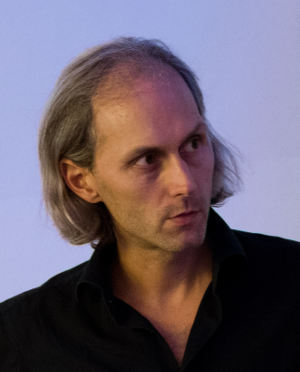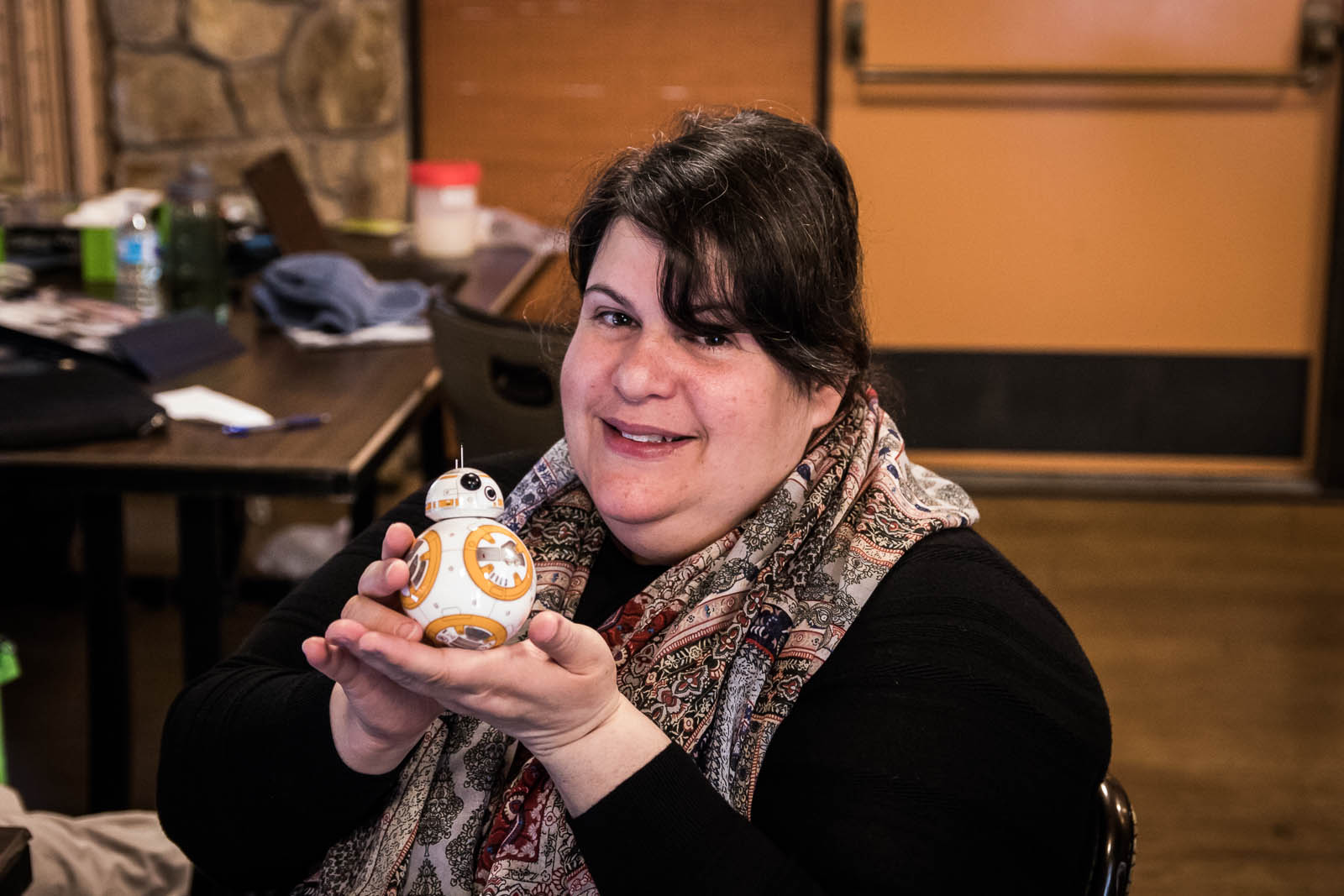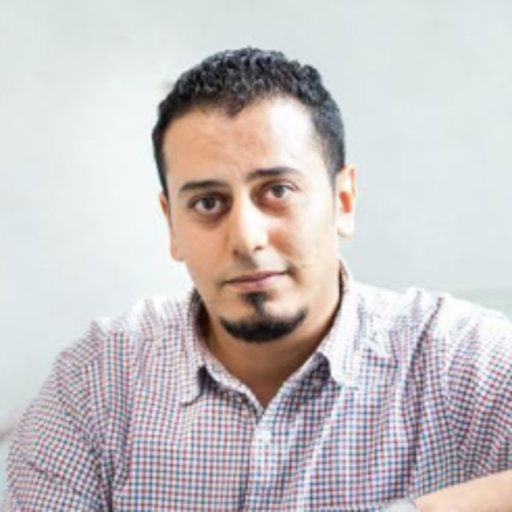
VIRTUAL
BR41N.IO
HACKATHON
during the
Summer School 2020
July 2-3, 2020
SIGN UP FOR A PROJECT
BR41N.IO is organized by g.tec neurotechnology Austria.
BR41N.IO is a brainstorming and collaborative marathon designed to be a learning experience for developers, technologists, engineers, students, artists, and scientists who cram and build brain-computer interface (BCI) applications together in teams.
Who can participate?
Anyone can participate who has interests in BMI, BCI, robotics, AR, VR, machine learning, computing, sensors, human-machine interface systems, control, signal processing, big data, haptics, rehabilitation, and similar areas.
Participants do not have to be a BMI expert to participate on a team! Interdisciplinary teams with a combination of BMI and non-BMI skills are often successful in building solutions and producing working prototypes.
Can I submit a different project?
Professional teams can also participate to develop applications during the BR41N.IO Designers' Hackathon to demonstrate full potential of some of the sponsored hardware/software.
If you are looking for additional skills from other team members, your project will be included among the BR41N.IO projects below for application. Submit your project to contact@br41n.io.
What's in there for me?
Be creative, think outside the box. The BR41N.IO Designers' Hackathon is fun and gets you to network and collaborate with other Geeks. The best BR41N.IO projects will be awarded with cash prizes:
PROGRAMMING PROJECT PRIZES:
- 1st IEEE Brain BR41N.IO Prize: $ 500
- 2nd BR41N.IO Prize: $ 300
- 3rd BR41N.IO Prize: $ 200
DATA ANALYSIS PROJECT PRIZES:
- 1st IEEE Brain BR41N.IO Prize: $ 500
- 2nd IEEE Brain BR41N.IO Prize: $ 300
- 3rd IEEE Brain BR41N.IO Prize: $ 200
SPECIAL OPPORTUNITY
FOR UNICORN HYBRID BLACK OWNERS
Do you have a Unicorn Hybrid Black at home or at your University/Institution? Great! Let's put together a team of students and participate with the Unicorn at the virtual BR41N.IO Hackathon.
TIMETABLE
Thursday, July 2
| 11:00 CEST | Optimizing non-invasive brain-computer interface systems for free communication between naive human participants David R. Painter, The University of Queensland (AU) |
| 12:00 CEST | Unicorn Brain Interface demonstration Martin Walchshofer, g.tec medical engineering (AT) |
| 13:00 CEST | Start BR41N.IO & team formation Christoph Guger (AT), Abdelkader N. Belkacem (EA) |
| 16:00 CEST | Neurotechnology project around the world Yannick Roy, NeuroTechX (CA) |
Friday, July 3
| 11:00 CEST |
Towards natural BCI interaction: A case study |
| 13:00 CEST | End BR41N.IO Hackathon |
| 14:00 CEST | Project presentations |
| 16:00 CEST | Meeting Hackathon Jury |
| 16:30 CEST | BR41N.IO Ceremony |
HACKATHON JURY
HOW TO PARTICIPATE
Step 1: Join the virtual Summer School!
g.tec's Summer School is the educational forerunner of the Virtual BR41N.IO Hackathon. Therefore, it's highly beneficial if you join the Summer School from June 29 until July 1, 2020. Once you acquired all the knowledge from the Summer School, you are perfectly prepared to compete with your fellows at the BR41N.IO Hackathon competition and create your own BCI applications!
Step 2: Sign up for a BR41N.IO project!
There are several predefined projects which you can choose to work on. Below, the projects are described in detail including hard- and software requirements. The Unicorn Hybrid Black and the Unicorn Suite should be used to realize BR41N.IO projects. But, you can use your own hardware and software for the BR41N.IO hackathon.
Step 3: Meet your team virtually or on-site!
We will connect you with the team members of your project. Create your own virtual meeting space using Skype, Google Hangouts, Zoom, etc. to start working on your ideas.
Step 4: Stay connected with us via Slack!
While you work on your groundbreaking new BCI applications, we are here to answer all the questions that might come up and support you wherever we can.
Step 5: Present your projects virtually and win!
You will be invited to present your results virtually via Zoom. Prepare yourself to explain what you did, what the results are and to show a demonstration (live or with a video) to the international audience.
ON-SITE LOCATIONS
G.TEC AUSTRIA
g.tec neurotechnology GmbH
Schiedlberg, Austria
UAEU ABU DHABI
United Arab Emirates University
Abu Dhabi, United Arab Emirates
PROGRAMMING PROJECTS*
*In order to participate you need the required software and hardware or you can visit one of the on-site locations.
Unicorn Speller: Smart Home
The Unicorn Brain Interface comes with the Unicorn Speller application that is using P300 paradigm to control electronic devices such as lamps, radios or television. Watch the video Unicorn Speller Smart Home.
soft-/hardware: Unicorn Hybrid Black, Unicorn Speller, electronic devices
participants: 2 groups, 3-5 people per group
skills: basic programming skills (Matlab, Simulink)
Orthosis Control
It is possible to control a 3D printed orthosis using a Unicorn Hybrid Black with motor imagery. It is possible to move an orthosis by thinking about left or right hand motion. Watch the Orthosis Control video.
soft-/hardware: Unicorn Hybrid Black, Unicorn Speller, bring your own orthosis or use Unity instead
participants: 2 groups, 3-5 people per group
Skills: Basic programming skills (Matlab, Simulink), basic graphics programming skills with Unity
Unity Rehab
Create a Unity based game that can be used for rehabilitation purposes.
soft-/hardware: Unicorn Hybrid Black, Unity
participants: 4 groups, 3-5 people per group
Skills: Basic programming skills (Matlab, Simulink), Basic graphics programming with Unity
Dream Painting
If you want to create a Dream Painting, you have to wear a Unicorn Brain Interface while you sleep. When you wake up, you are able to create a picture based on EEG signals.
soft-/hardware: Unicorn Hybrid Black, Unicorn Painting
participants: 2 groups, 3-5 people per group
skills: Basic programming skills (Matlab, Simulink)
fNIRS and EEG Control
The team can use fNIRS (functional near-infrared spectroscopy) and EEG simultaneously to control BCI applications.
soft-/hardware: g.Nautilus fNIRS
participants: 1 group, 3-5 people per group
skills: Basic programming skills (Matlab, Simulink)
Unity Games
Create your own Unity game that can be controlled with a brain-computer interface.
soft-/hardware: Unicorn Hybrid Black, Unicorn Suite, Unity
participants: 4 groups, 3-5 people per group
Skills: Basic programming skills (Matlab, Simulink), Basic graphics programming with Unity
Unicorn Sphero
The Unicorn Hybrid Black offers the Unicorn Speller application that allows you to control a robotic ball called Sphero. Watch the video Unicorn Sphero.
soft-/hardware: Unicorn Hybrid Black, Unicorn Sphero, Sphero robot
participants: 2 groups, 3-5 people per group
skills: Basic programming skills (C#)
Flight Control
The Unicorn Hybrid Black comes with the Unicorn Speller which allows you to fly your own drone with the brain only.
soft-/hardware: Unicorn Hybrid Black, Unicorn Speller, bring your own drone or use Unity instead
participants: 2 groups, 3-5 people per group
skills: Basic programming skills (Java)
Your Hacking Project
You are invited to create your own programming project for this hackathon. You'll have all the BCI headsets or you bring your own BCI to design and program your own fully functional headset.
soft-/hardware specifications: Unicorn Hybrid Black, tbd
participants: 2 groups, 3-5 people per group
skills: Basic programming skills
OFFLINE DATA ANALYSIS PROJECTS**
**no hardware required.
Stroke Rehab Data Analysis
Analyze a motor imagery BCI data-set from a chronic stroke patient in order to optimize pre-processing, feature extraction and classification algorithms. Compare your results with state-of-the-art algorithms.
soft-/hardware: MATLAB or other signal processing platform that is able to read in the MATLAB matrix
participants: 3 groups, 3-5 people per group
skills: signal processing skills
P300 Speller Data Analysis
Analyze a visual P300 BCI data-set from a healthy person in order to optimize pre-processing, feature extraction and classification algorithms. Compare your results with state-of-the-art algorithms.
soft-/hardware: MATLAB or other signal processing platform that is able to read in the MATLAB matrix
participants: 3 groups, 3-5 people per group
skills: signal processing skills
Unresponsive Wakefullness Syndrom Data Analysis
Analyze a vibro-tactile P300 BCI data-set from a patient with disorders of consciousness in order to optimize pre-processing, feature extraction and classification algorithms. Compare your results with state-of-the-art algorithms.
soft-/hardware: MATLAB or other signal processing platform that is able to read in the MATLAB matrix
participants: 3 groups, 3-5 people per group
skills: signal processing skills
SSVEP Data Analysis
Analyze an SSVEP BCI data-set from a healthy person in order to optimize pre-processing, feature extraction and classification algorithms. Compare your results with state-of-the-art algorithms.
soft-/hardware: MATLAB or other signal processing platform that is able to read in the MATLAB matrix
participants: 3 groups, 3-5 people per groupskills: signal processing skills
Locked-in Patient Data Analysis
Analyze a vibro-tactile P300 BCI data-set from a patient with locked-in syndrom in order to optimize pre-processing, feature extraction and classification algorithms. Compare your results with state-of-the-art algorithms.
soft-/hardware: MATLAB or other signal processing platform that is able to read in the MATLAB matrix
participants: 3 groups, 3-5 people per group
skills: signal processing skills
ECoG Hand Pose Data Analysis
Analyze an ECoG BCI data-set from an epilepsy person in order to optimize pre-processing, feature extraction and classification algorithms. Compare your results with state-of-the-art algorithms.
soft-/hardware: MATLAB or other signal processing platform that is able to read in the MATLAB matrix
participants: 3 groups, 3-5 people per group
skills: signal processing skills







